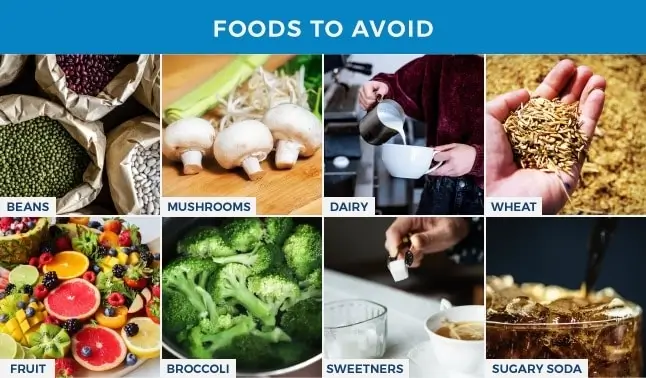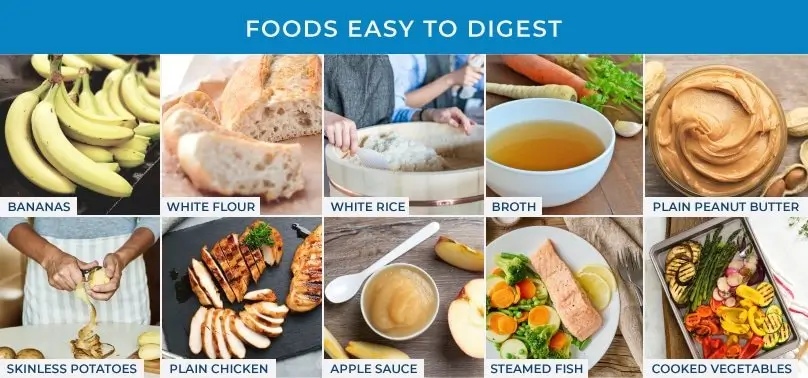Bloating can be very uncomfortable, especially when you’re dealing with ulcerative colitis, a type of inflammatory bowel disease (IBD). Abdominal pain is the number one symptom of why people visit the ER. To alleviate bloating and prevent it from becoming painful, here are some helpful tips on how to relieve bloating from ulcerative colitis.

Treatment Options for Bloating (Ulcerative Colitis Gas Relief)
- Heat will decompress the pressure that is being built up in your abdomen from gas. Try a heating pad or a hot bath.

- Take an enzyme-based dietary supplement; it helps reduce gas in the digestive tract and improve your digestion.
- Exercise can reduce the buildup of gas through motion. You don’t have to go through an intense workout. A lengthy walk will do the job. However, adding exercise to your regular routine will prevent digestion issues such as bloating so if you’re not exercising regularly start now!

- Resting in a fetal position on your left side can help you release trapped gas.

- Over the counter medications. Some can be effective and others can be irritating so make sure to check with your primary care physician to make sure it’s safe to take.

If none of these solutions help, your condition may be more serious. Please seek medical care immediately if symptoms worsen.
Learn More: Could Your Stomach Ache Be Appendicitis?
Causes of Bloating
In order to prevent bloating, it’s important to understand the reasons why it occurs.
Bloating simply stems from an excess of gas in the intestines. There are certain foods that create gas:

Foods to Avoid for an Ulcerative Colitis diet
- Beans
- Mushrooms
- Milk & dairy products
- Wheat
- Fruit
- Broccoli
- Sweeteners
- Sugary Soda
These foods when broken down, have certain things like fiber and fructose that result in a build-up of gas due to their difficulty to be broken down and chemical reactions that result in gas production as well.
Swallowing air can also trap gas. You may not be aware that you are trapping gas but some of the most common ways you trap gas are by chewing gum, eating hard candy (they contain large amounts of high-fructose corn syrup), drinking soda, champagne, or mineral water, and drinking through straws; when you drink through a straw you are sucking in air. It’s important to avoid these foods when trying to create a healthy ulcerative colitis diet.
Lactose intolerance can also make you feel bloated. Lactose is a sugar found in cow’s milk that some adults and children have difficulty breaking down. Medication can help in managing bloating and other symptoms.
Learn More: Uncommon Food Allergies

Safe Foods for an Ulcerative Colitis diet
The following foods are easy to digest and therefore are good options when suffering from ulcerative colitis symptoms or a flare up.
- Bananas
- Crackers or bread made from white flour
- White rice
- Broth
- Plain peanut butter
- Skinless potatoes
- Plain chicken
- Apple sauce
- Steamed fish
- Cooked vegetables

Prevent Bloating with a Change in Diet
The easiest way to prevent bloating is to avoid gas-causing foods as mentioned above. When changing your diet in a drastic way, please consult your doctor before doing so.
We hope that you use our tips on how to relieve ulcerative colitis, but if your abdomen feels tender, your bloating worsens or is accompanied by other symptoms, please seek immediate medical attention. If your symptoms don’t go away, you will likely need medical interference. Stop by Village Emergency Centers in Clear Creek, or Jersey Village for the quality medical care that you deserve.
Further Reading:
Can Birth Control Cause Ovarian Cysts?
